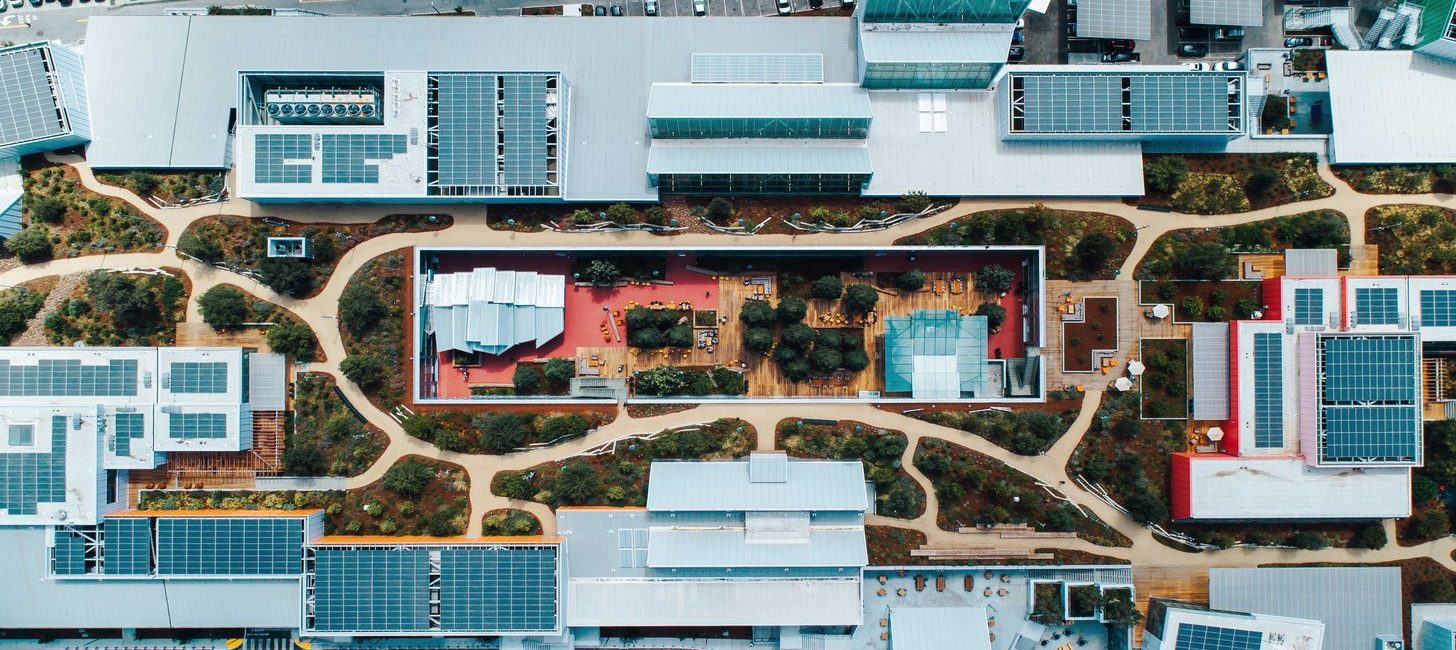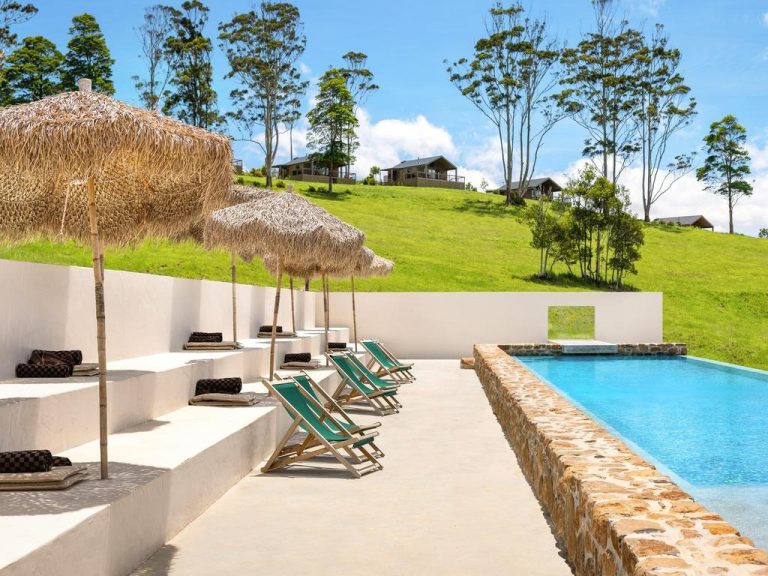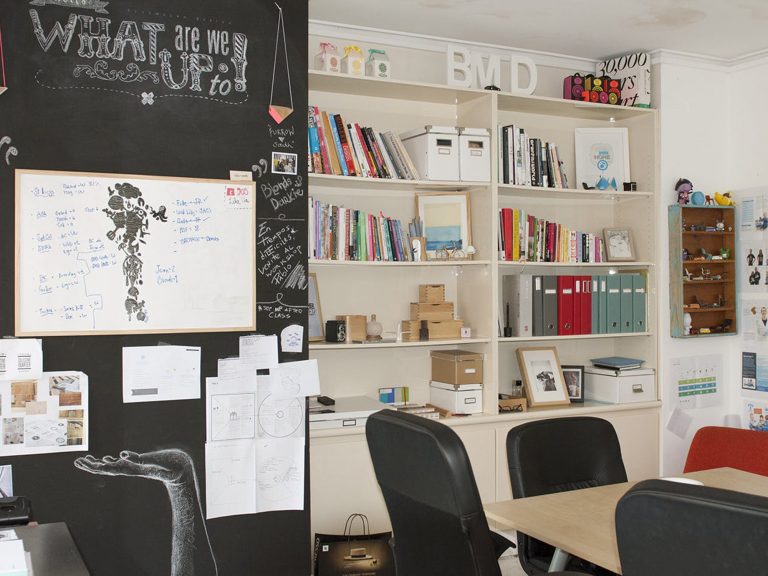Facebook unveils Frank Gehry-designed concrete jungle

Facebook has expanded its headquarters in Menlo Park, California with the addition of an environmentally-sustainable building described as a “natural evolution” in the way employees operate, behave and move.
World renowned architect Frank Gehry designed the building, which is an expansion of the Facebook office he built in 2015. The 89-year-old Canadian has also designed offices for Facebook and Instagram in London, Dublin and New York.
Known as MPK 21, the new office blurs the lines between nature and man-made construction and was built in less than 18 months.
Employees in need of fresh air can walk along a half-mile pathway that meanders through a 1.5 hectare rooftop garden, recline on an L-shaped couch in an amphitheater-style tropical courtyard, or take shelter under one of many 12-metre-tall redwood trees in the building’s ‘Town Square,’ which also contains five restaurants and 15 art installations commissioned through the company’s Artist in Residence Program.
Elsewhere, visible staircases and flexible work stations encourage employees to stay mobile.

The building’s ‘Town Square’ comes complete with 40-foot-tall redwood trees, five restaurants and 15 art installations. Picture: Facebook Newsroom
A single pathway runs the length of the building and connects employees to the Town Square.
Coupled with an indoor flexible workspace, the walkway reflects a sense of “flow and movement” that Facebook’s vice president of Human Resources Janelle Gale says is “conducive to allowing people to do the very best work of their careers”.

One pathway runs the length of the building, furnishing the space with a sense of flow. Picture: Facebook Newsroom
As the ample dose of greenery suggests, vice president of Global Facilities and Real Estate John Tenanes says the building is also “highly sustainable” and LEED Platinum certified.
The roof is designed to maximise the amount of natural sunlight flowing into the building during the day, reducing the need for artificial lighting. It also includes 1.4 MW of photovoltaic solar panels, which will generate nearly 2 million kWh of electricity annually, and features fritted windows to protect birds. A reclaimed water system will also recycle and filter MPK21’s water and allegedly save 17 million gallons of water every year.
“Finally,” writes Tenanes, “we enrolled in Peninsula Clean Energy’s ECO100 energy option to reduce our carbon footprint, helping Menlo Park reach its climate action goals.”
While MPK 21 is already open for business, Facebook has already announced expansion plans. The company’s first ports of call will be a two-acre public park comprising bike paths and a plaza, and a 2,000-person event space that will be used to host Facebook Festivals, mobile farmers’ market and other local programs.
Like Tenanes, Gehry described the construction of MPK 21 as something akin to an evolution.
“All the things we learned doing building 20, prepared us for 21,” he said. “We were getting lessons in Facebook culture, and we’re making a new kind of architecture within that culture.”
What’s more, the way he sees it, the building belongs.
“I feel like we’re not turning our back on the neighbourhood; we’re talking to the architecture of the neighbourhood.”







